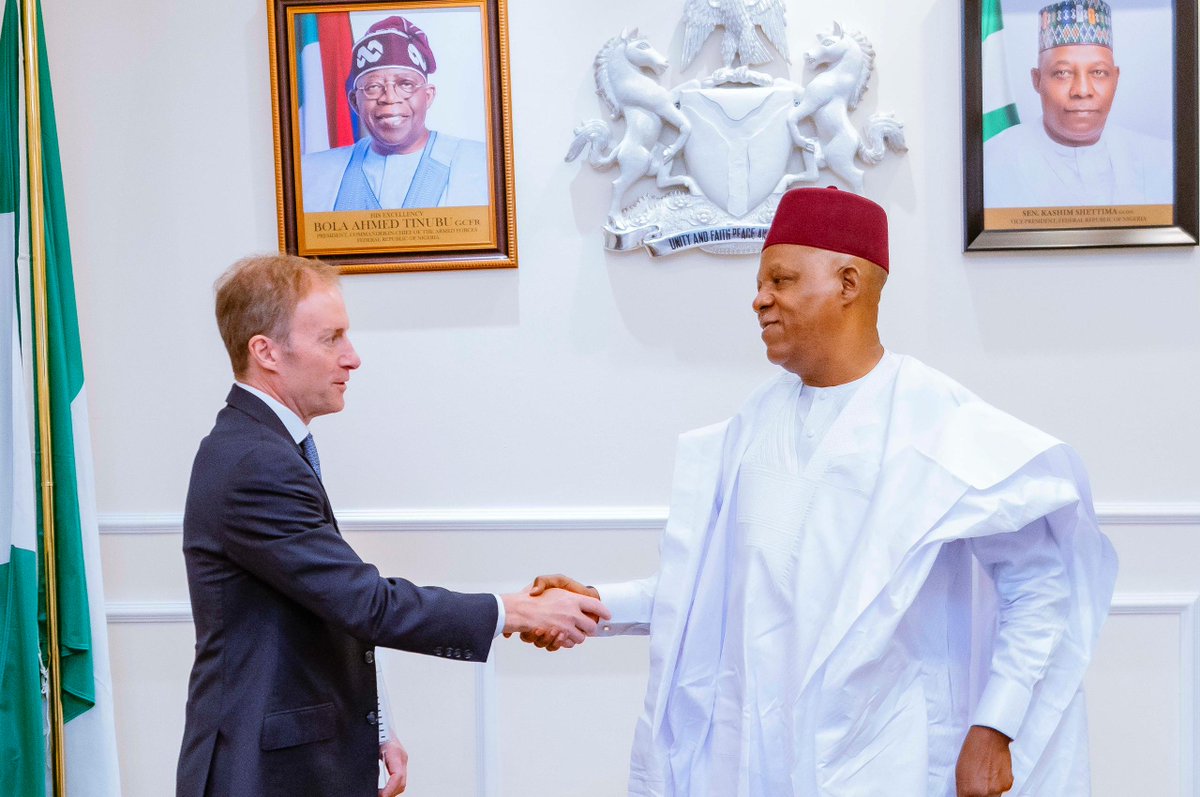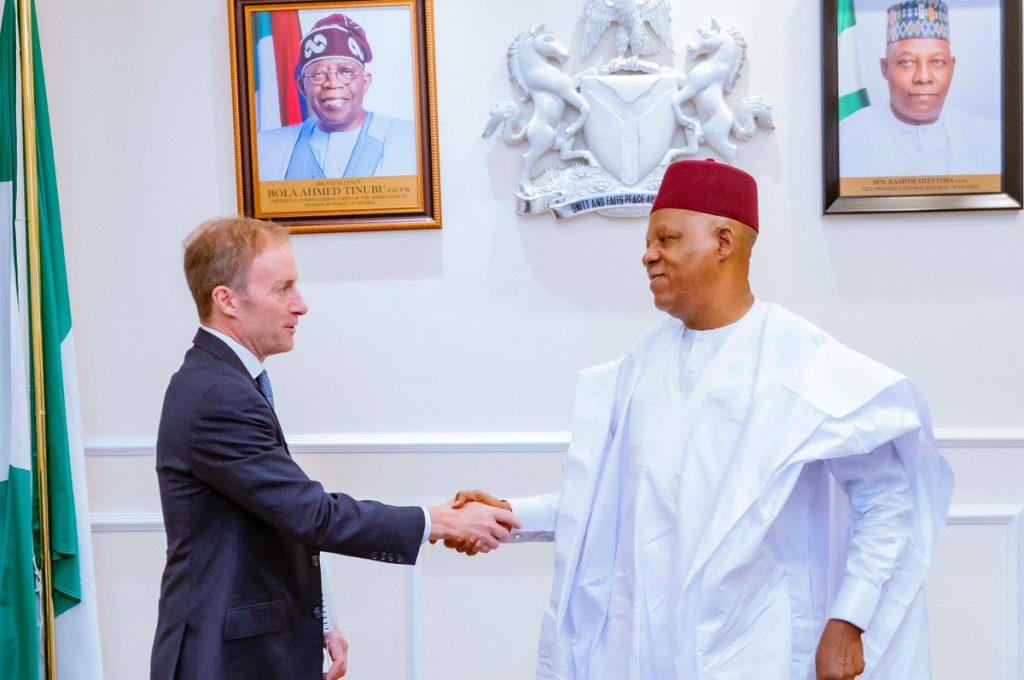Vice President Kashim Shettima, has reaffirmed the President Bola Tinubu administration’s commitment to transforming the country’s cocoa industry by shifting focus from primary production to large-scale processing.
He spoke on Monday during a meeting with a delegation from the World Cocoa Foundation (WCF) led by its President, Chris Vincent, at the Presidential Villa.
Shettima said the Federal Government was determined to restore Nigeria’s lost glory as a global leader in cocoa production and to unlock greater value through local processing.
READ ALSO: ‘Now is time to invest in Nigeria’ – Shettima to Citibank
“We don’t want to be producers of cocoa; we want to be processors,” the Vice President said.
“A tonne of raw cocoa may fetch $9,000, but processed cocoa products can bring in up to $30,000, and chocolate bars could go for as much as $50,000.”
He noted that the administration had already begun laying the groundwork for revitalising the sector.
At a recent Federal Executive Council (FEC) meeting, the government approved the establishment of a National Cocoa Management Board to oversee and coordinate efforts across the cocoa value chain.

“We used to be one of the world’s leading cocoa producers before oil discovery diverted our attention. But with the President’s Renewed Hope Agenda, we are going back to the drawing board,” he said.
Shettima, who revealed he was setting up a personal cocoa farm to lead by example, said the drive was not just about profits but about creating employment and supporting social welfare.
He assured the WCF delegation that Nigeria had a young and capable workforce ready to take on opportunities in the sector.
“I speak from the heart: we are ready to partner with your organisation,” he said, pledging to personally engage the Taraba State Governor to secure 10,000 hectares in Kurmi LGA for WCF’s investment plans.
WCF President Chris Vincent expressed readiness to support Nigeria’s cocoa ambition, citing the global shortage of sustainable cocoa supply and the current price surge as an opportunity for Nigeria to re-enter the global market competitively.
Meanwhile, Nigeria is seeking a $25 billion investment to support the construction of the Nigeria-Morocco undersea gas pipeline, a project designed to transport natural gas from Nigeria through the West African coast to Europe.
During a separate meeting on Monday with senior executives of the Vitol Group— the world’s largest independent commodity trading company—Shettima described the gas project as critical to Nigeria’s energy strategy and a unique opportunity for international investors.
“Our economy is essentially a gas economy. We have the eighth-largest gas reserves in the world,” Shettima said, adding that the Tinubu administration’s reforms— including fuel subsidy removal, exchange rate unification, and tax reforms— had positioned Nigeria as a top investment destination.
While acknowledging the project’s significant financial cost, the Vice President stressed that Nigeria needed technical expertise more than capital. “We need you more for your technical expertise than your money,” he told the Vitol team.
He assured them of a transparent management structure and urged them to leverage their global influence to support the project.
“Use your goodwill and contacts to mobilise support. This is where the action is—invest in Nigeria.”
READ ALSO: Shettima: Institutional reforms will solve 80% of Nigeria’s bureaucratic problems
Vitol’s Chief Financial Officer, Jeffrey Dellapina, reaffirmed the company’s long-term commitment to Nigeria. “We have always been close to Nigeria and are committed to remaining here. We are ready to deploy capital when needed.”
Vitol’s Head of Public Affairs, Murtala Baloni, also noted the firm’s role in supporting Project Gazelle, a crude oil-backed forward-sale financing deal with NNPC Limited, where Vitol contributed $300 million during the COVID-19 period.



